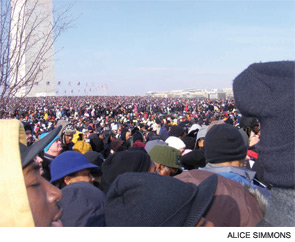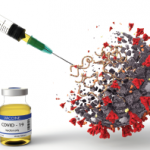
To appreciate the inauguration of Barack Obama, it had to be witnessed from the ground. The attempts to show the National Mall from a satellite failed miserably. The technology to scope out events from space is certainly nifty, but it diminished, not enhanced, the joyous pilgrimage that had assembled. From hundreds of miles above earth, the crowds looked like a swarm of ants or puddles of muddy brown sludge.
Everything about the inauguration was thrilling, even if Itzhak and Yo-Yo had to bow-sync “Air and Simple Gifts” in the frigid air. The thrill came from both a desire for and an anticipation of change. Regrettably, America is on the financial ropes and we will suffer a knockout blow unless we act responsibility, get beyond childish ways, and enact real change. Business as usual will no longer work and we have to prepare for a brave new world that will be unsettling and frightening because of the magnitude of change we need.
Healthcare is part of that change. If someone from the podium on the Capitol steps had said, “If you want change in healthcare, please raise your hand,” I would bet that every hand would shoot up and create an upward draft to set the flags fluttering wildly.
Alas, change in the healthcare will not be simple because our system is broken and the solutions for change are as numerous as were the people on the Mall. Although we had a magical display of unity on January 20, Americans are individualists to the core. There are still Republicans and Democrats, red states and blue states, and red people and blue people. In the wonderful poetry of his inauguration benediction, Reverend Joseph Lowery enumerated the colors in the American tapestry. A tapestry is great, but the colors are still brightly there.

Dreams of Change
In the future, as we decide about change in healthcare, we will have to make important distinctions: change we can believe in, change we can agree upon, and change that we can afford.
More often than not, the desire for change is personal, and I know the change I want. Near the top of my wish list for healthcare change is research funding. Research is the engine of medical progress and it drives improvement in patient care. I want more money for the National Institutes of Health, Department of Veterans Affairs, and Centers for Disease Control and Prevention—so much money that you see the stacks of greenbacks from the satellite cyclops in the sky. I want the research coffers to overflow and get scientists back to work.
